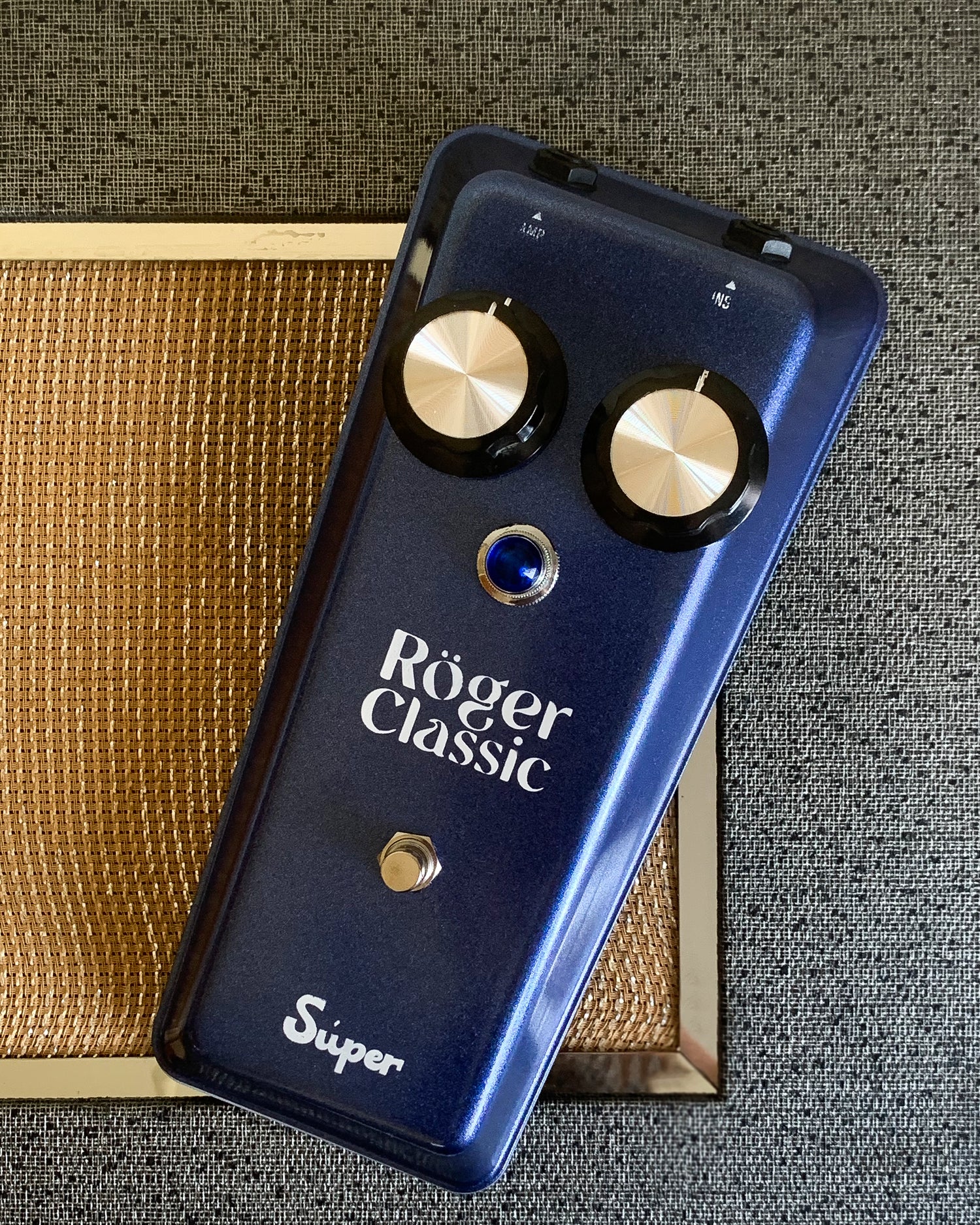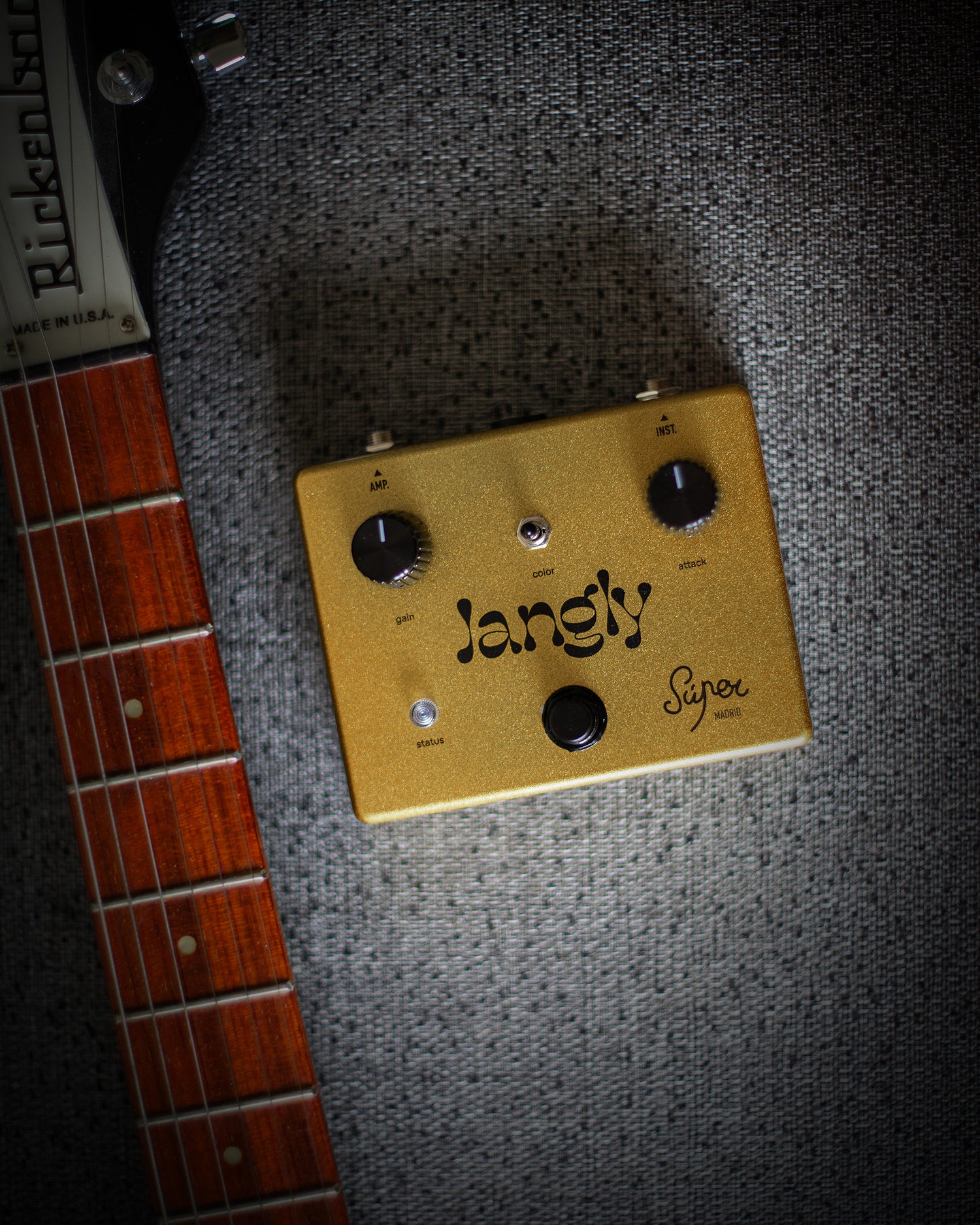
Why is it important to match germanium transistors when making a fuzz pedal and how do we do it by hand at Super Pedals?
In the world of guitar fuzz pedals, especially those aiming to replicate the classic sound of the 60s and 70s, using germanium transistors is crucial for achieving the characteristic vintage tone. However, unlike silicon transistors, germanium ones exhibit greater performance variations, making it necessary to match them carefully to ensure that each pedal sounds and performs as expected. At Super Pedals, we carry out this process by hand, following the guidelines of the original products and ensuring exceptional quality in each pedal.
Why match germanium transistors?
Germanium transistors, while offering a warm and authentic sound quality, can vary significantly in their gain (hFE) and leakage current. These differences can affect the performance of a fuzz pedal if not matched properly. Matching them is essential for:
- Consistent and Balanced Sound: A classic fuzz pedal uses two transistors that interact with each other. If their electrical characteristics are not aligned, the sound can become inconsistent, overly distorted, or simply not function as it should.
- Noise Reduction: Germanium transistors tend to have higher leakage currents, which can generate unwanted noise. By matching transistors with low leakage, we achieve a cleaner tone free from interference.
- Optimal Performance: Matching ensures that the transistors work together efficiently, preventing issues like oscillations or unexpected variations in tone. This process is crucial for achieving a predictable and stable sound in any usage scenario.
Our Handmade Process
At Super Pedals, we employ a fully handmade process to create pedals that not only replicate the classics from the 60s and 70s but also offer the highest level of quality and detail. Each pedal undergoes a rigorous selection and adjustment process.
- Precise Transistor Selection: We use advanced tools like the Peak Atlas DCA55 to measure the gain and leakage current of each germanium transistor. From these measurements, we select only the transistors that meet our high-quality standards.
- Manual and Customized Matching: Once selected, the transistors are manually matched to ensure they work together optimally in the circuit. This level of customization guarantees that each pedal maintains the expected vintage sound character.
- Trimmers for Voltage and Bias Adjustment: Many of our circuits include trimmers, small adjustments that allow for hyper-precise tuning of the voltage and bias reaching the transistors. This provides additional flexibility to adjust the tone and ensure that each pedal performs at its best.
- Vintage Equipment Testing: Once the matching and adjustment process is complete, each pedal undergoes rigorous testing using vintage equipment from the 60s and 70s. These tests allow us to ensure that the final sound is not only authentic but also responds in the same way as the original pedals from that era.
Why Choose Super Pedals?
At Super Pedals, our passion for vintage sound and handmade processes is reflected in every pedal we manufacture. We are experts in recreating classic fuzz pedals, and each one is handmade with the attention to detail characteristic of high-quality boutique products. Our matching and adjustment process allows us to offer pedals that not only sound like the originals but also provide reliable performance and exceptional sonic quality.
We take pride in being the Home of Fuzz, and our dedication to handmade processes and technical precision distinguishes us as leaders in the world of fuzz pedals.
Conclusion: Matching germanium transistors is an essential step to ensure that a fuzz pedal delivers a consistent and balanced sound. At Super Pedals, we follow a rigorous and handmade process to ensure that each pedal not only captures the spirit of the classics but does so with exceptional quality.


